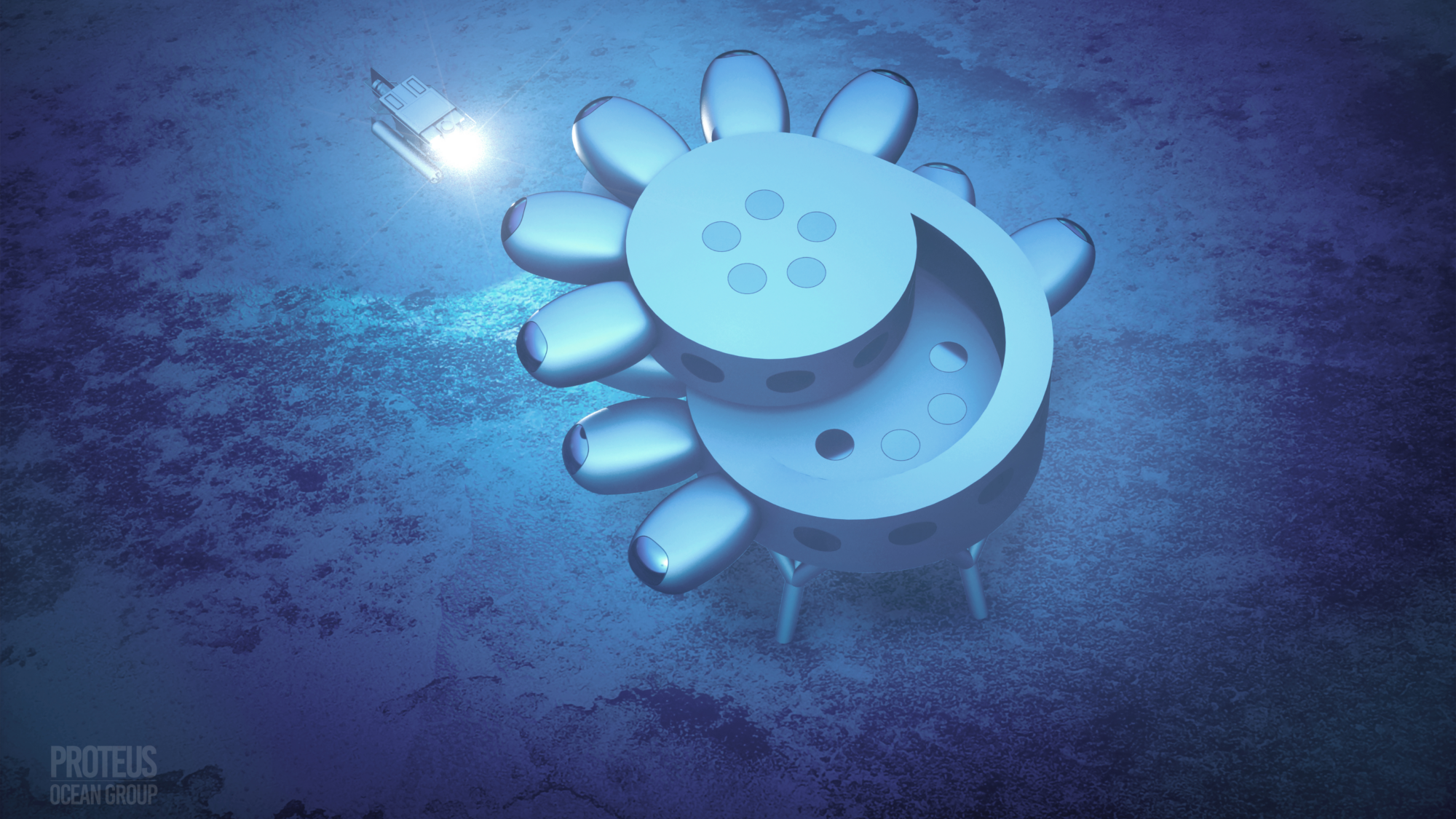

Today, the National Oceanic and Atmospheric Administration announced that it will be signing a new research agreement with Proteus Ocean Group, which has been drawing up ambitious plans to build a roomy underwater research facility that can host scientists for long stays while they study the marine environment up close.
The facility, called Proteus, is the brainchild of Fabien Cousteau, the grandson of Jacques Cousteau.
“On PROTEUS™ we will have unbridled access to the ocean 24/7, making possible long-term studies with continuous human observation and experimentation,” Cousteau, founder of Proteus Ocean Group, said in a press release. “With NOAA’s collaboration, the discoveries we can make — in relation to climate refugia, super corals, life-saving drugs, micro environmental data tied to climate events and many others — will be truly groundbreaking. We look forward to sharing those stories with the world.”
This is by no means new territory for the government agency. NOAA has previously commandeered a similar reef base off the coast of Florida called Aquarius. But Aquarius is aging, and space there is relatively confined—accommodating up to six occupants in 400 sq ft. Proteus, the new project, aims to create a habitat around 2,000 sq ft for up to 12 occupants.
This kind of habitat, the first of which is set to be located off the coast of Curacao in the Caribbean, is still on track to be operational by 2026, Lisa Marrocchino, CEO of Proteus Ocean Group, tells PopSci. A second location is set to be announced soon as well. “As far as the engineering process and partners, we’re just looking at that. We’ll be announcing those shortly. We’re evaluating a few different partners, given that it’s such a huge project.”
[Related: Jacques Cousteau’s grandson is building a network of ocean floor research stations]
Filling gaps in ocean science is a key part of understanding its role in the climate change puzzle. Now that the collaborative research and development agreement is signed, the two organizations will soon be starting workshops on how to tackle future missions related to climate change, collecting ocean data, or even engineering input in building the underwater base.
“Those will start progressing as we start working together,” Marrocchino says. “We’re just beginning the design process. It’s to the point where we are narrowing down the location. We’ve got one or two really great locations. Now we’re getting in there to see what can be built and what can’t be built.”
The NOAA partnership is only the beginning for Proteus. According to Marrocchino, Proteus Ocean Group has been chatting with other government agencies, and expects to announce more collaborations later this year. “The space community in particular is super excited about what we’re planning to do,” she says. “They really resonate with the idea that it’s very familiar to them in extreme environments, microgravity and pressure.”
Marrocchino also teased that there are ongoing negotiations with large multi-million dollar global brand partners, which will fund large portions of the innovative research set to happen at Proteus. “We’re seeing a trend towards big corporate brands coming towards the idea of a lab underwater,” she says. “You’ll see some partnership agreements geared towards advancing ocean science.”
